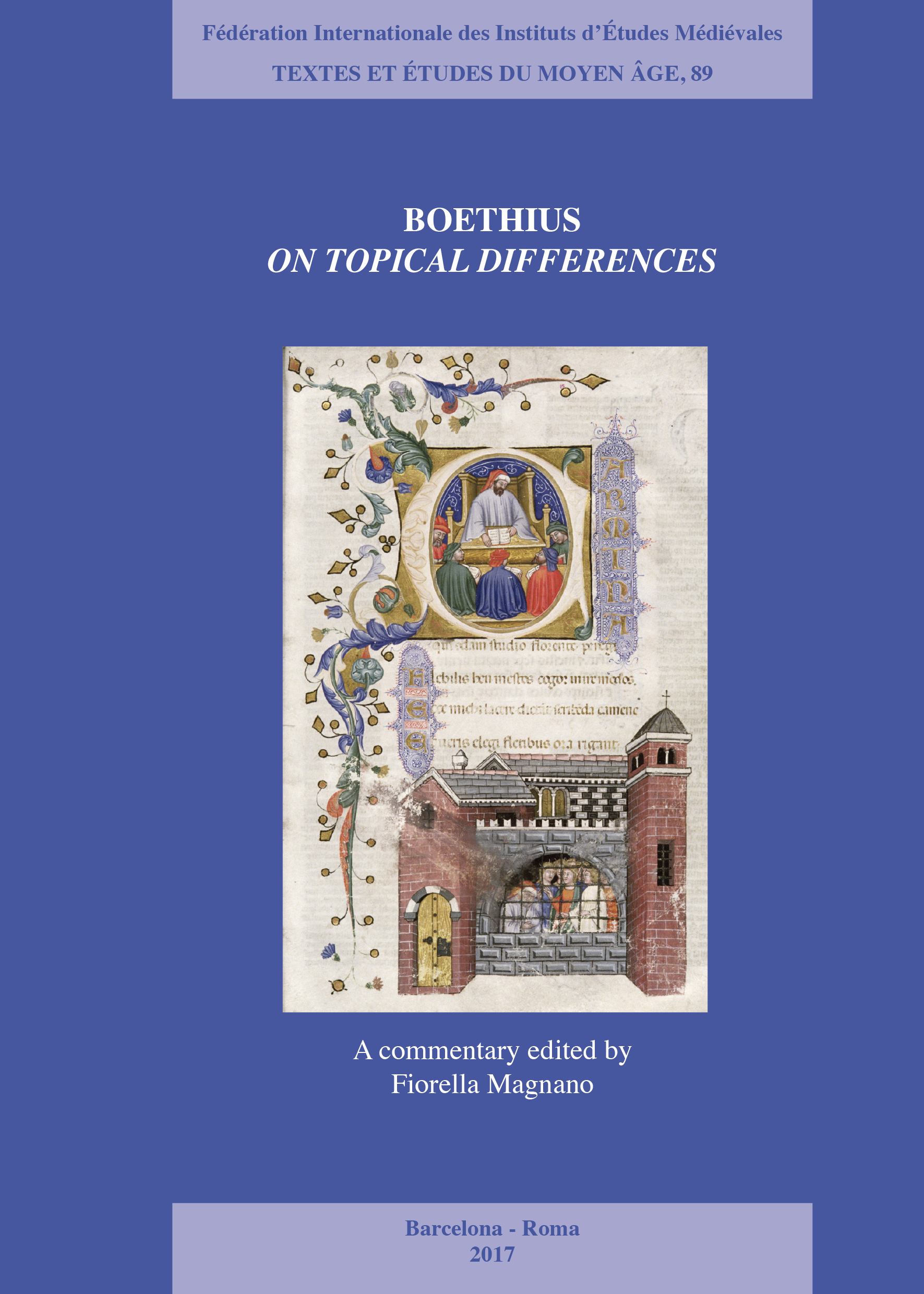
Cover illustration
Glasgow University Library (Scotland), Ms Hunter 374, f. 4r, Boethius with Students in Prison, from De Consolatione Philosophiae cum Commento, 1385 (vellum), Italian School (14th century). Bridgeman Images.
Series Complete
Volume 81-100
Volume 41-60
Volume 21-40
Volume 1-20
Boethius
On Topical Differences
A commentary edited by Fiorella Magnano
Barcelona, Roma 2017; XCIV+400 p., 70 b/w tables, 165 x 240 mm; ISBN 978-2-503-57931-3
This volume contains the fi rst modern commentary to Boethius’s last logical monograph entitled De topicis differentiis, his most original work written around 522 A.D., just before the incarceration and death of the Roman philosopher. His textbook aims at providing a method for the discovery of arguments, that is an art that teaches how to solve any kind of question through the use of the topics, litteraly places of our mind able to produce arguments subsequently developed into argumentations.
Boethius inherited this teaching from two different traditions, the Greek and Latin.
In light of the differences found in them, the Roman scholar undertook the writing of the De topicis differentiis precisely in order to show the possible way of reconciling these two philosophical traditions.
In this way Boethius was able to disseminate a unified vision of this matter to the Latin world, restoring the centrality that the Topics had in the Aristotelian Logic and restoring their noblest function, that of being instruments at the service of the search for Truth.
Finally, he also provided the list of the rhetorical topics by showing the differences with dialectical topics. This study provides a full reconstruction of the structure of the Boethian work, retraces and evaluates the sources, investigates the implications, and explains why the Detopicis differentiis remains a foundational work for anyone who wants to understand the development of European Logic through the Middle Ages and the Renaissance.
